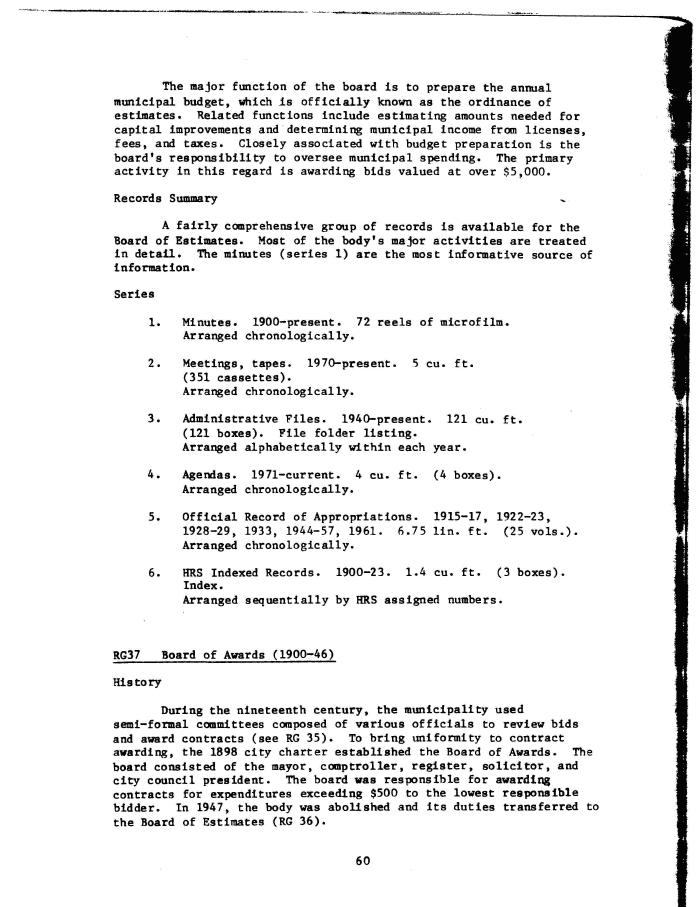|
The major function of the board is to prepare the annual
municipal budget, which is officially known as the ordinance of
estimates. Related functions include estimating amounts needed for
capital improvements and determining municipal income from licenses,
fees, and taxes. Closely associated with budget preparation is the
board's responsibility to oversee municipal spending. The primary
activity in this regard is awarding bids valued at over $5,000.
Records Summary
A fairly comprehensive group of records is available for the
Board of Estimates. Most of the body's major activities are treated
in detail. The minutes (series 1) are the most informative source of
information.
Series
1. Minutes. 1900-present. 72 reels of microfilm.
Arranged chronologically.
2. Meetings, tapes. 1970-present. 5 cu. ft.
(351 cassettes).
Arranged chronologically.
3. Administrative Files. 1940-present. 121 cu. ft.
(121 boxes). Pile folder listing.
Arranged alphabetically within each year.
4. Agendas. 1971-current. 4 cu. ft. (4 boxes).
Arranged chronologically.
5. Official Record of Appropriations. 1915-17, 1922-23,
1928-29, 1933, 1944-57, 1961. 6.75 lin. ft. (25 vols.)
Arranged chronologically.
6. HRS Indexed Records. 1900-23. 1.4 cu. ft. (3 boxes).
Index.
Arranged sequentially by HRS assigned numbers.
RG37 Board of Awards (1900-46)
History
During the nineteenth century, the municipality used
semi-formal committees composed of various officials to review bids
and award contracts (see RG 35). To bring uniformity to contract
awarding, the 1898 city charter established the Board of Awards. The
board consisted of the mayor, comptroller, register, solicitor, and
city council president. The board was responsible for awarding
contracts for expenditures exceeding $500 to the lowest responsible
bidder. In 1947, the body was abolished and its duties transferred to
the Board of Estimates (RG 36).
60
|

